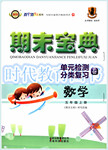题目内容
______, the pay isn’t attractive enough, though the job itself is quite interesting.
A.Generally speaking B.On the contrary C.In particular D.To be honest
D
解析:
略

练习册系列答案
 期末宝典单元检测分类复习卷系列答案
期末宝典单元检测分类复习卷系列答案
相关题目
题目内容
______, the pay isn’t attractive enough, though the job itself is quite interesting.
A.Generally speaking B.On the contrary C.In particular D.To be honest
D
略

 期末宝典单元检测分类复习卷系列答案
期末宝典单元检测分类复习卷系列答案